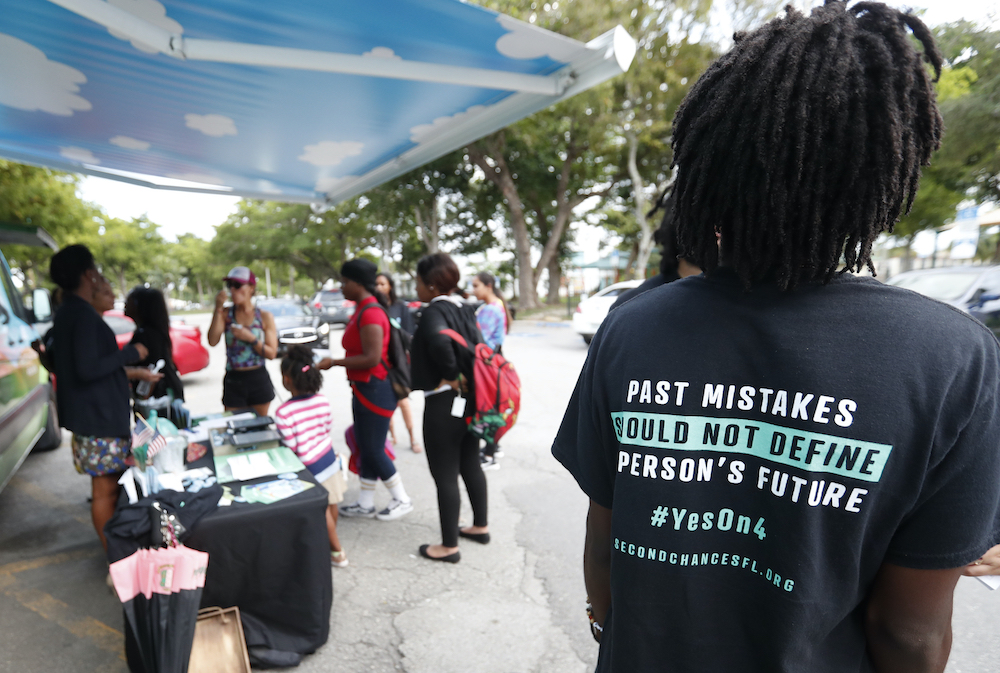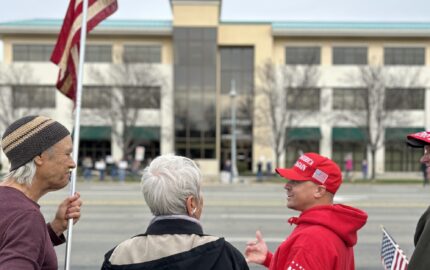As a 53-year-old, family-owned, Black-led newspaper in Pinellas County, Florida, The WeeklyChallenger’s mission has been to expound upon, educate, and address the interests and needs of the Black population in St. Petersburg and Tampa Bay. While we speak to the issues of several Black communities throughout the region, our growing multiracial, multi-ethnic, multigenerational, and intersectional readership continues to demand that we engage in a wide array of issues that face many sectors and counties.
Unlike newspapers that only put their foot in the concerns of the Black/Brown community during high-stakes periods, we function completely within this realm. However, we do not, as a small community paper, have the luxury of determining how we will disperse lots of resources around these uncertainties. We are simply, actively, engaging in the call of the moment. We are focused on how to prepare our communities for many uncertainties.
Our community has been hit in a deadly way by Covid-19 and the ongoing economic result; just a week ago, a white supremacist aimed a gun at St. Pete Peace Protest members still marching around issues of unjust policing; and we continue to face a number of weighty issues around education.
Related Reading
With mis- and disinformation campaigns heating up, a vacancy on the supreme Court, and a President who refuses to commit to accepting the results, the 2020 election arrives at a period of extraordinary uncertainty and tension. Nieman Reports and Nieman Lab are publishing a collection of stories exploring how newsrooms are covering this intensely contested vote and its aftermath.
How Not to Cover Voter Fraud
By Yochai Benkler, Nieman Reports
The election could be contested and last for weeks after Nov. 3. Here’s what experts think journalists should know.
By Sarah Scire, Nieman Lab
Critical Coverage: Cable News and Trump’s Covid-19 Diagnosis
By Celeste Katz Marston, Nieman Reports
Like most media outlets, informing readers on issues related to voting is critical right now. While turnout during the 2016 general election averaged over 77% in Florida, Hispanic and Black turnout declined in 2016, from 59% in 2012 to 52%, according to the Brookings Institution. This election cycle has had to contend with an inordinate amount of doubt and confusion, much of it heaped on the topic of voting by mail.
The topic of expanding voting by mail to maximize and encourage voting numbers has been unnecessarily complicated and problematized by the current administration’s non-factual claims that voting by mail increases voter fraud. After the recent presidential debate, a reader wrote in: “In my lifetime I have never seen any politician attempt to confuse voters like the current presidential administration … 45 is on a misinformation campaign about mail-in ballots ... and distrust in the voting count process taking months ... not since Florida’s voting crisis with Gore/Bush has it been this level of uncertainty with the outcome of the election.”
We have taken these kinds of comments seriously, and along with partner media organizations that make up our Tampa Bay Black Media Coalition, we’ve started a voter awareness campaign, inviting stakeholders and voting educators to take part in online forums. Ongoing efforts include increasing our online and print articles on topics such as voter suppression and uploading videos on voting by mail and early voting.
Recently, we discussed whether we would be adding fuel to the flame if we brought up the more heightened voting anxieties plaguing our audiences. Acknowledging we wouldn’t want to NOT bring up some of the issues we know our community is hearing, reading, and watching on other media outlets anyway, we decided we needed to address some of more worrying issues hanging in the air.
So, this week we will post an online, three-question “conversation starter” that readers and online users can respond to by email or on Facebook. The three questions are indicative of the growing unease, worry—and, for some, brimming panic—we’re picking up online, and through community conversations and events. The questions are:
- What concerns you most about this election cycle?
- How confident are you in the voting system, vote by mail, ?
- What will we do if our voting system fails us on November 3rd?
The last question is by far the one which none of us really wanted to put out there. But, once we agreed we needed to admit our own nagging fears, one coalition member voiced our greatest anxiety: “My biggest concern is post-election vigilante violence by white supremacists, and the threat of random violence (or worse, organized violence) to every day African Americans and other people of color.”
We’re also dealing with a lot of trauma over the ongoing fight to activate Amendment 4—and the long-fought and hard-won (so we thought) battle to restore voting rights to those returned citizens who completed their sentences for non-violent felony offenses in the state of Florida. The amendment, which was passed by voters in 2018, has been repeatedly attacked and imperiled by Florida Republicans. While as many as 1.4 million returned citizens were looking forward to their voting rights being restored, as of September there were as many as 700,000 whose rights had not been restored due to fees and fines. According to the Sentencing Project, 21% of Black Floridians are disenfranchised. Historically, Blacks still overwhelmingly tend to register as Democrats.
The fight over this amendment is a topic of immense importance to us since many of our most visible and vocal community activists themselves remain disenfranchised. One of our efforts has been to hire some of these very same groups to create educational videos on the census and voting rights, which we can share on our online news outlet, YouTube, and Facebook. By putting the camera in the hands of these disenfranchised but extremely impassioned and invested citizen ‘street-team’ journalists, we’re giving them the power to direct and receive the storytelling of this voting cycle in ways we may not have originally considered.
Finally, realizing that, regardless of the outcome of this election, we must prepare ourselves for a possibly rocky period of post-election transition, we’ve decided it’s time to begin to reach out to our native Spanish-speaking brothers and sisters to begin to build partnerships and coalitions to address shared issues of inequity and systemic racism plaguing our county.
Armed with the very thorough and weighty Pinellas County Equity Profile sponsored by UNITE Pinellas and put together by PolicyLink, we have more than enough information on the inequitable and systemically racist policies reigning over this county to last us several dozen election cycles. Many of these issues will not be addressed until Black and Brown communities come together to plan, reinforce, and speak up for and with each other.
In an effort to start this—as well as gradually acclimate our audience to the concerns, issues, and inequities facing another historically disenfranchised population – we have recently added our first Latina writer to our tiny staff, tasked to help engage our Latinx/Hispanic communities in conversations that are pertinent to them. In this way, we are reaching out, beyond the concerns of our base readership.
We have to do ALL of this at once—even as we continue to supply our readers with the best coverage possible on each of the myriad of issues facing our community.
J.A. Jones is an award-winning playwright, screenplay writer, and author of the upcoming Black Classic Press release “Sometimes Farmgirls Become Revolutionaries: Florence Tate on Black Power, Black Politics and the FBI.”



